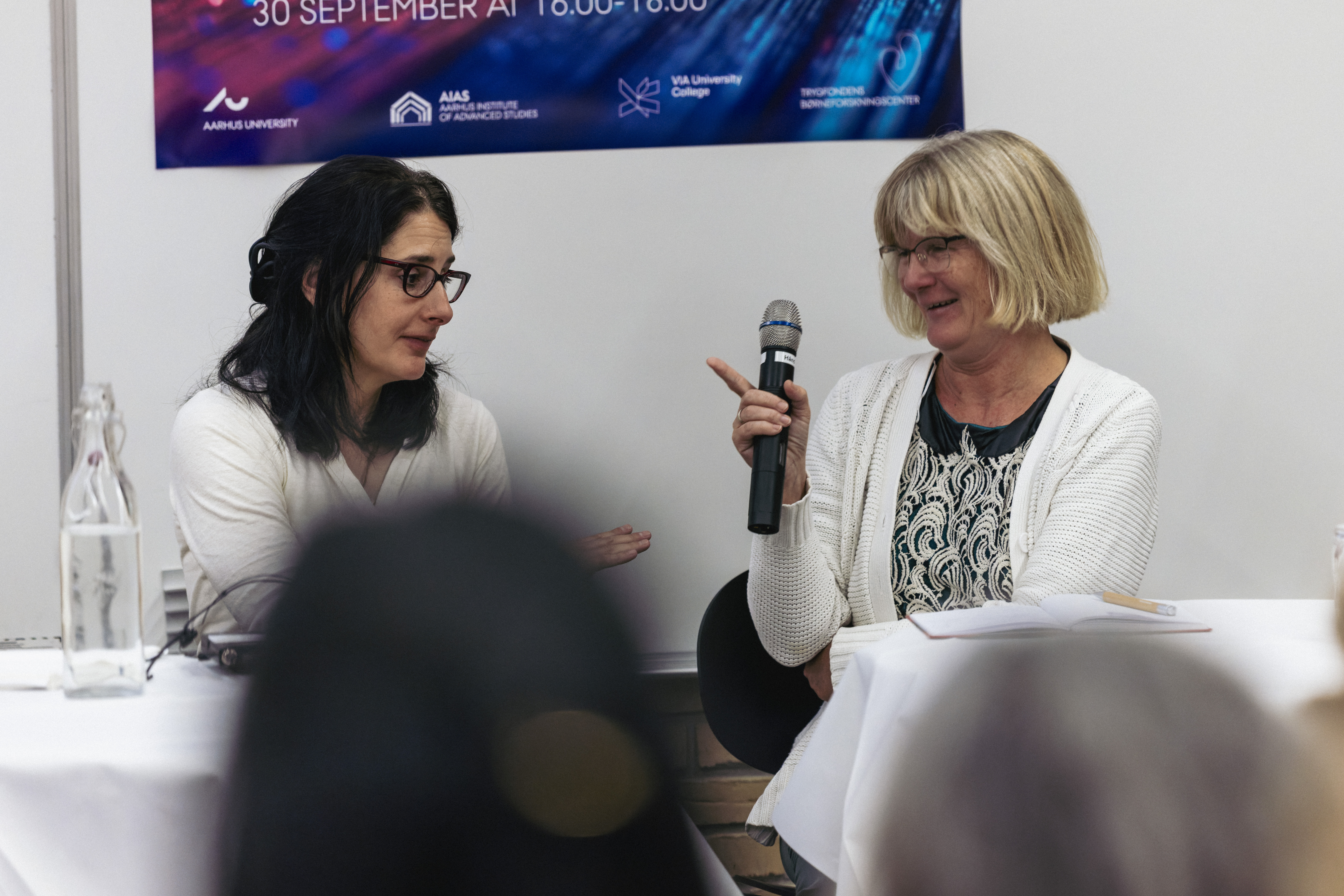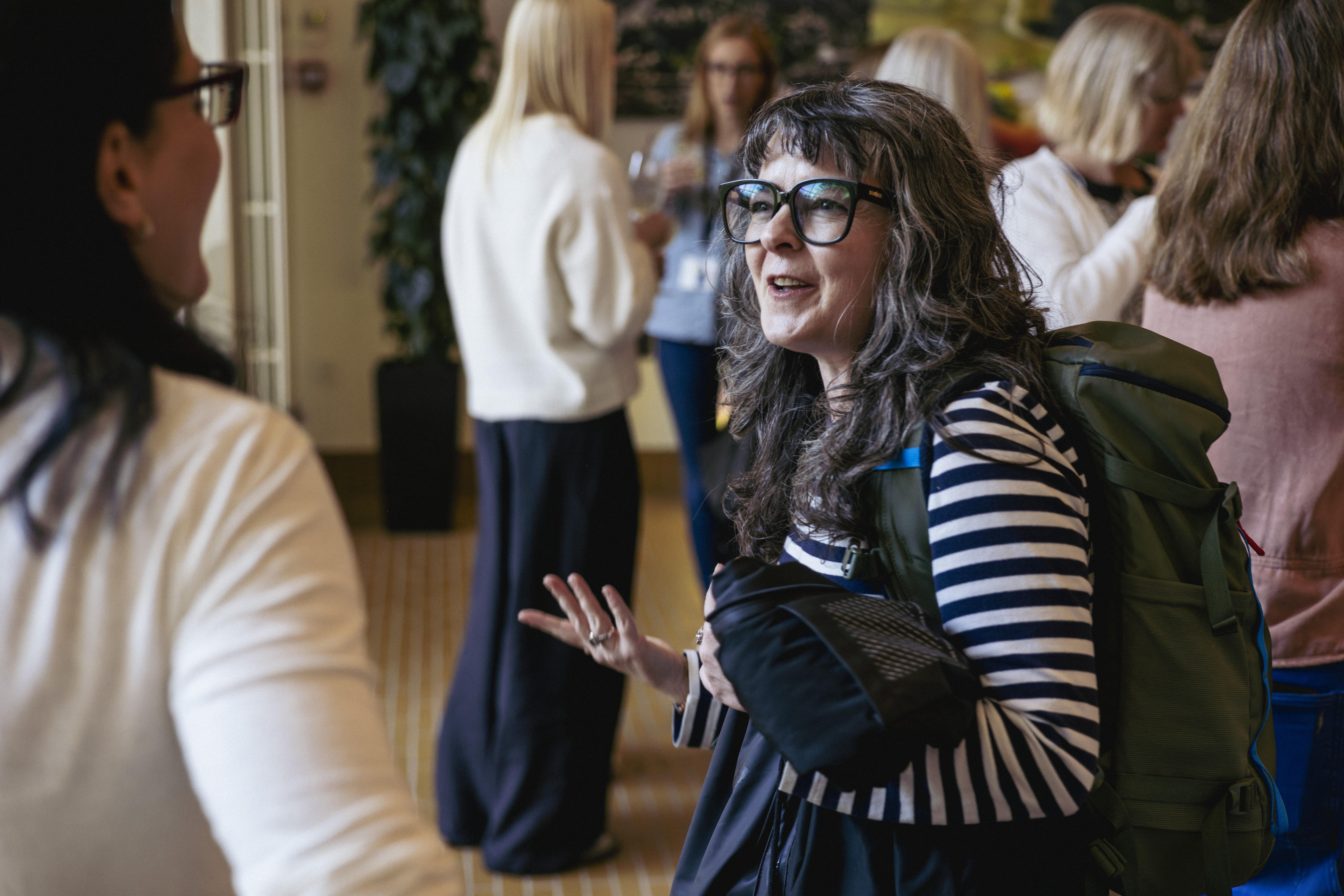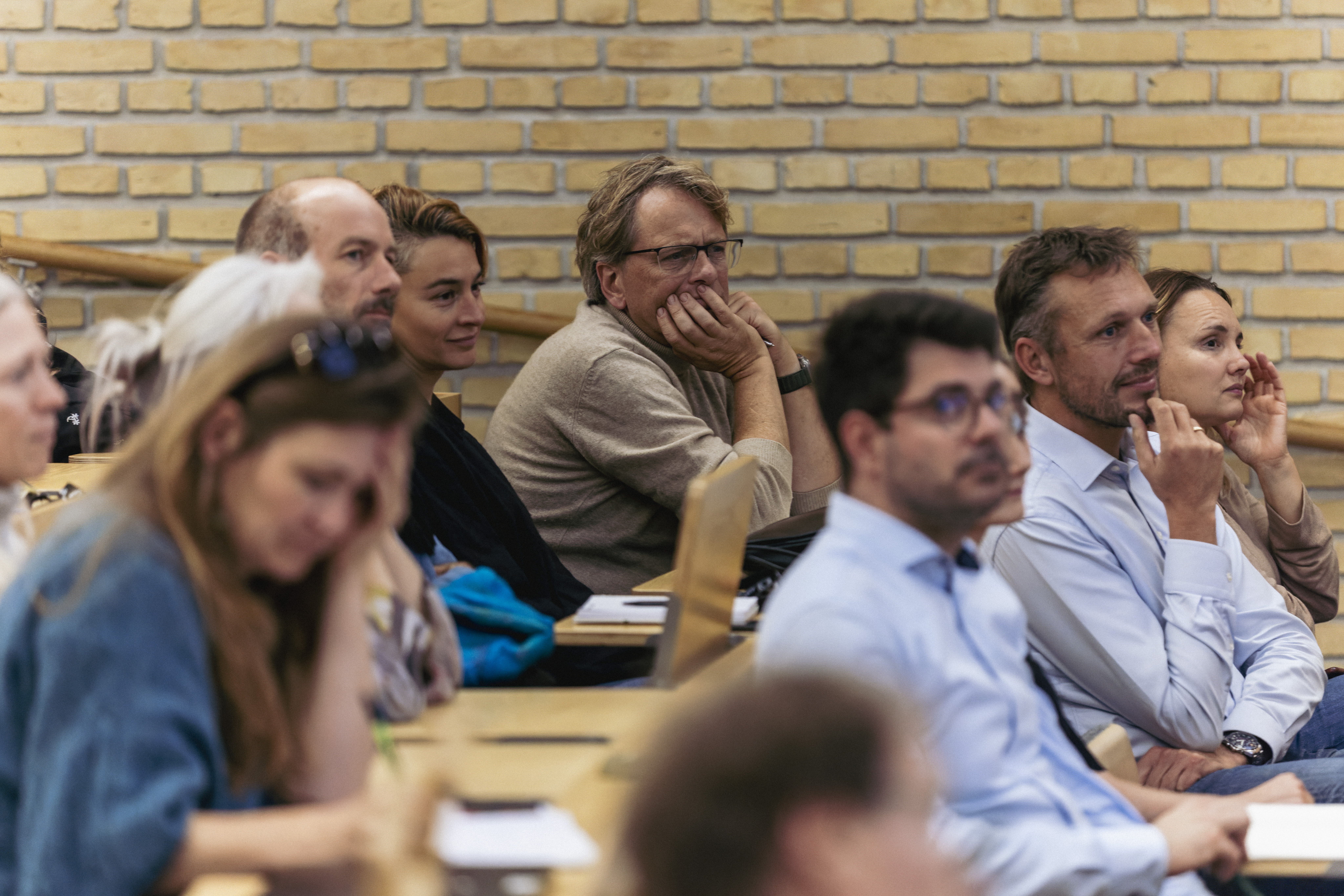Learning is the means, not the ends of schooling. What if educators were experts in human development?
In the second ‘Science & Flavour of Aarhus’ talk world-renowned educational neuroscientist Mary Helen Immordino-Yang (University of Southern California) discussed how we learn and develop, and how brains and bodies grow during adolescence. Her research demonstrates that emotions and meaning-making play a critical role in this phase of life. These findings could provide valuable inputs for the upcoming remake of Danish youth educations.







On 30 September, Professor Mary Helen Immordino-Yang gave the talk ‘Weaving a colorful cloth: Centering education on humans’ developmental potentials’ at AIAS organized in collaboration with TrygFondens Børneforskningscenter (TrygFonden Centre for Child Research) and VIA University College as part of the ‘Science & Flavour of Aarhus’ series.
Intertwinement of our experiences – like weaving a colourful cloth
Based on decades of studying teenage development, in brains, bodies, behaviour and language, Mary Helen Immordino-Yang kicked off her talk by emphasizing how human biology and culture should not be considered separate entities. They are deeply intertwined. We always live our lives in a context, and in human development culture and environment are deeply intertwined with our physical brains and bodies.
Thus, even a genetic predisposition, as when a newborn finds the gaze of a parent, is activated in a relation and a context deeply shaped by practices and culture.
“Emotions may be automatic, but we need to learn how to feel,” she insisted, highlighting the importance of how we learn to interpret and experience the world.
Teens from troubled neighborhoods – meaning-making facing adversities
For more than two decades, Immordino-Yang and her lab have followed teens and young adults from troubled neighborhoods across the US to see how they make meaning in the world when struggling to overcome adversities. Using an innovative combination of long 2-hour interviews and brain MRI-scans of individuals, her research shows that during moments of reflection, so-called transcendent thinking, youngsters have widespread neural activity that link brain regions typically associated with thinking, feeling and keeping the body alive and well. These patterns also come to determine how their brains grow as the children become older. These findings have further been replicated across cultures.
When we feel pain or pleasure physically or we are revolted by ideas of torture or thrilled by solving a mathematical equation this is all located in the anterior insula, our ‘gut’ feeling. This is why learning and emotions are intertwined as values, beliefs and ideals are hooked into the biological make-up.
"Emotionally engaged thinking activates brain systems that keep you alive,” Immordino-Yang’s brain studies reveal.
Concretely, this means that when the young people transcend, go beyond, the concrete experience and start to make ethical and moral implications of stories or experiences, a process of narrativizing the reality begin of imagining possible futures and possibles ideas. So, thinking deeply is essentially telling complex stories to yourself that activates memories, emotions and basic life processes.
Young people’s ability to reflect on and think deeply about stories or experiences, further, predict their brain growth later in life, and importantly also how content they are.
Moving from skills to ideas – developmental teaching
What can we learn from Mary Helen Immordino-Yang’s ground-breaking studies of adolescence over time? According to Mary Helen, we need to rethink the way we think about teaching and school:
“What you feel is what you can learn. If emotions are tied to grades and evaluations, then that’s what you become good at. Meaningful learning shifts teachers and students away from emotions about outcomes and results to emotions about ideas,” Mary Helen Immordino-Yang explains.
If you want to change the educational system, you must change how teachers learn how to teach. Schools should not only be about learning, but instead about human development – learning is the means, not the ends of school. To enhance learning and thriving, there is a need for a switch to developmental teaching. Thus, educators should be seen as experts in human development.
Overturning teaching curriculum - cross-disciplinary perspectives
Immordino-Yang’s talk was followed by a debate with political scientist Simon Calmar Andersen, centre director of TrygFondens Børneforskningscenter/ Centre for Child Research, and Henriette Duch, researcher and practitioner at VIA University College, moderated by Andreas Roepstorff, director of AIAS.
“Students with high-level of discipline, who get their work done, do well in their later career. Is that a contradiction to your research findings where focus is on thinking and reflection, and not only on the ‘doing’,” Simon Calmar asked Immordino-Yang.
According to Mary Helen we cannot have one without the other – you need to learn to be able to tip back and forth between the very concrete: (answers, getting things done) and the transcendent; (reflection and deep thinking). Thus, learning activities, curriculum and teachers should open up a world to children where they think meaningfully about larger problems, and where they are allowed to feel in order to develop and grow. Of course they also need concrete skills e.g. to be able to write an essay about complex issues or to do difficult mathematics – but they must be based in the emotion and motivation first.
Henriette Duch from VIA University College raised her concerns on behalf of teaching and education:
How should we do this in practice, a radically different teaching curriculum and education system is required?”
Teachers must be experts in human development, was the short reply from Immordino-Yang. They should understand the development of their students, not just teach them math, chemistry or grammar. Learning in schools should be seen as a means to develop yourself.
Access the resent research article of Immordino-Yang
'Weaving a Colorful Cloth: Centering Education on Humans’ Emergent Developmental Potentials' by Mary Helen Immordino-Yang et al in: Review of Research in Education:
https://osf.io/qhezk/download
More about the ‘Science & the Flavour of Aarhus’ talk with Prof. Mary Helen Immordino-Yang
The second Science & the Flavour of Aarhus talk was organized by Aarhus Institute of Advanced Studies (AIAS) in collaboration with TrygFondens Børneforskningscenter (TrygFonden Centre for Child Research) and VIA University College.
https://aias.au.dk/events/science-and-the-flavour-of-aarhus-mary-helen-immordino-yang
Photo credit: photographer Lise Balsby.
Contact
Andreas Roepstorff, AIAS director
E-mail: andreas.roepstorff@aias.au.dk
Aarhus Institute of Advanced Studies, AIAS
Høegh-Guldbergs Gade 6B
DK-8000 Aarhus C
Denmark
